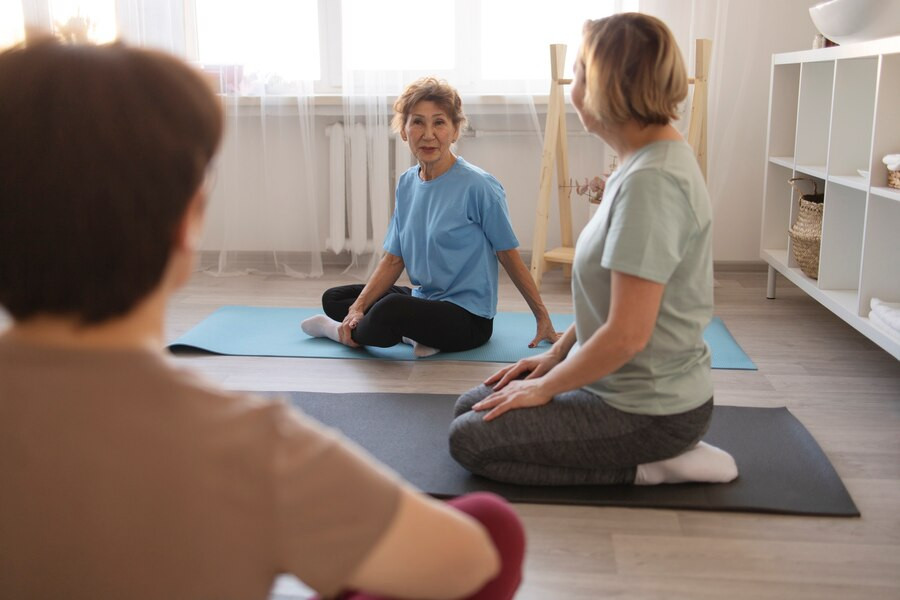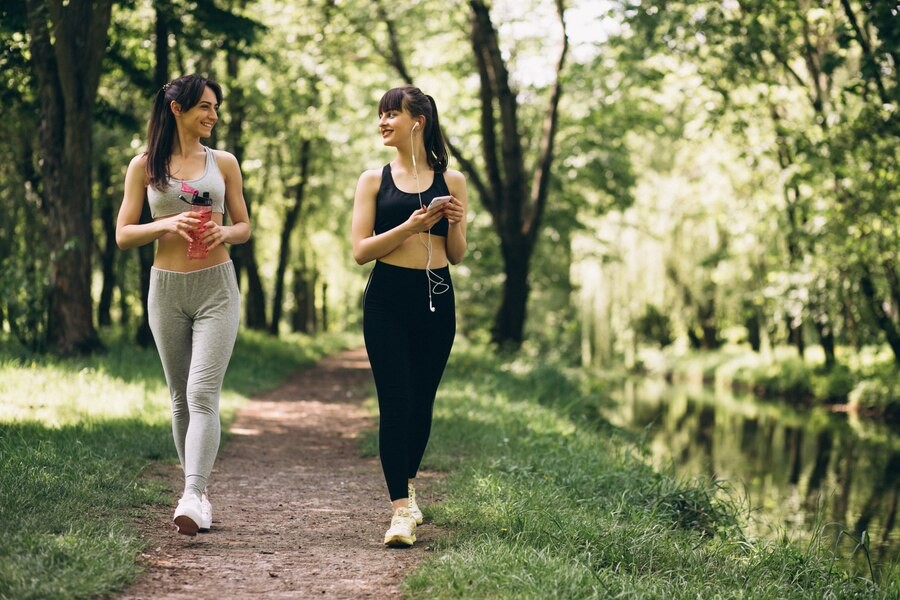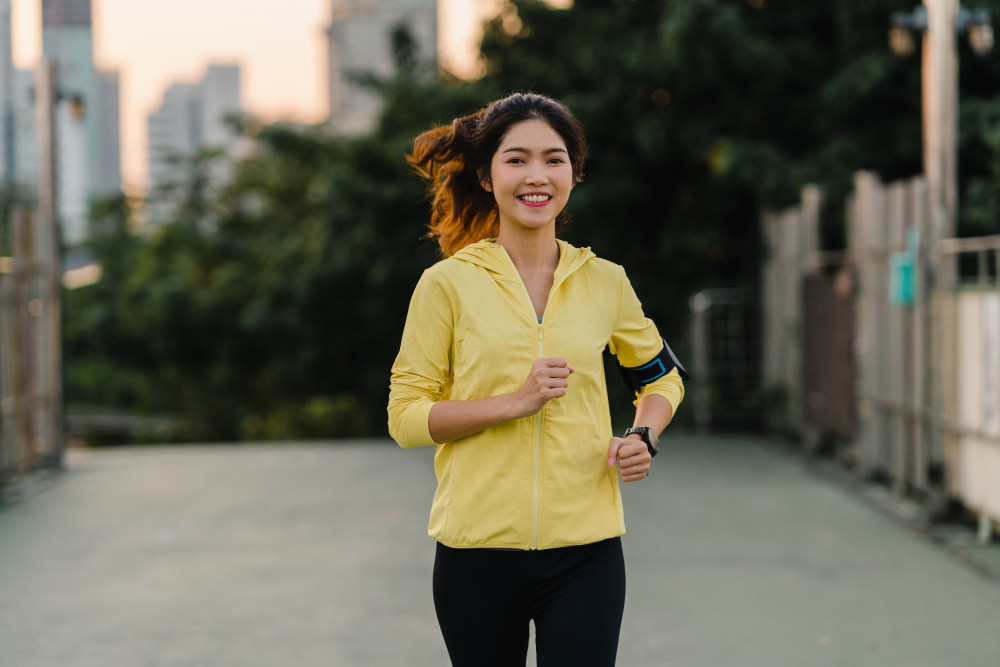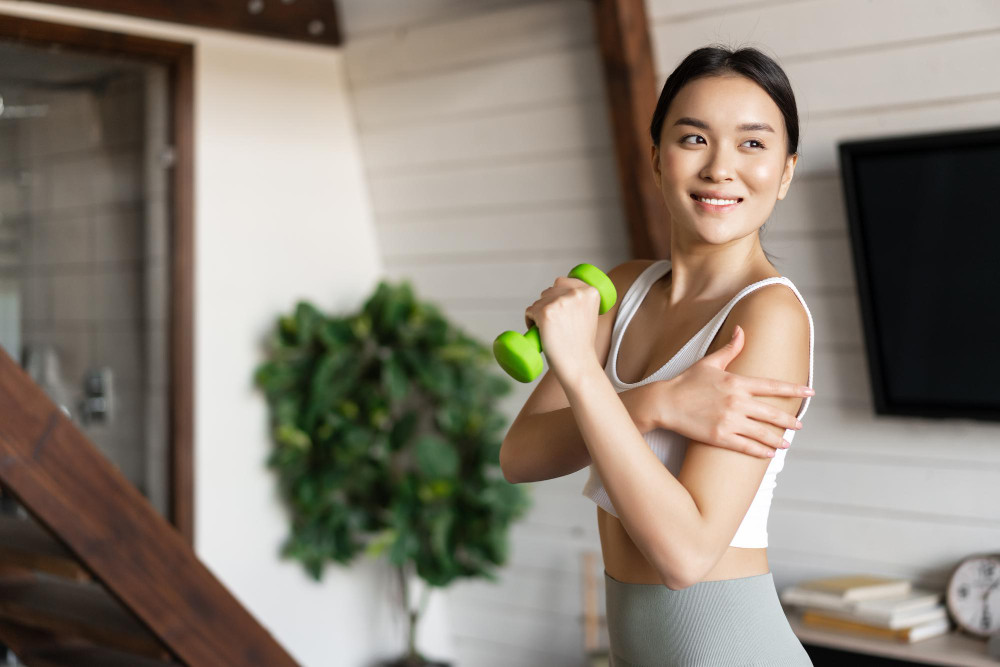Pound fit bukanlah olahraga yang hanya bisa dilakukan kaum muda. Olahraga ini dirancang agar bisa dilakukan oleh siapa saja dan semua golongan usia.
Bagi lansia, pound fit juga menawarkan banyak manfaat kesehatan yang signifikan. Dengan beberapa penyesuaian, latihan ini juga dapat menjadi cara yang menyenangkan bagi lansia untuk tetap aktif dan sehat.
Manfaat Pound Fit untuk Lansia
Melakukan latihan olahraga secara rutin, termasuk pound fit dapat memberikan banyak manfaat bagi kesehatan lansia, di antaranya:
Meningkatkan kesehatan jantung dan paru-paru
Latihan pound fit melibatkan banyak gerakan kardio yang dapat meningkatkan kesehatan jantung dan paru-paru. Dengan olahraga secara teratur, lansia dapat memperkuat otot jantung, meningkatkan sirkulasi darah, dan meningkatkan kapasitas paru-paru.
Meningkatkan keseimbangan dan koordinasi
Keseimbangan dan koordinasi tubuh sering kali menurun seiring bertambahnya usia. Pound fit dengan gerakan yang berirama dapat membantu melatih keseimbangan tubuh dan koordinasi motorik.
Latihan ini dapat membantu mengurangi risiko jatuh, yang menjadi penyebab utama cedera pada lansia.
Menguatkan otot tulang
Latihan pound fit melibatkan banyak gerakan yang memperkuat otot-otot di seluruh tubuh, termasuk otot inti, lengan, dan kaki. Dengan menguatkan otot maka tubuh akan lebih kuat, mencegah kelemahan otot, dan mendukung tulang yang lebih sehat.
Pound fit merupakan olahraga yang menggabungkan latihan kardio dan kekuatan gerakan, serta penggunaan beban tambahan berbentuk seperti stik drum (Ripstix) yang bermanfaat meningkatkan kepadatan tulang sehingga dapat mencegah osteoporosis.
Baca Juga: Apakah Pound Fit Efektif Membantu Mengatasi Sakit Punggung?
Meningkatkan fleksibilitas dan mobilitas
Fleksibilitas dan mobilitas sering menurun pada lansia, yang dapat menyebabkan kekakuan dan nyeri sendi. Pound fit melibatkan berbagai gerakan peregangan yang dapat membantu menjaga atau meningkatkan fleksibilitas otot dan sendi.
Menjalani olahraga pound fit secara teratur dapat membantu memudahkan lansia dalam melakukan aktivitas sehari-hari, seperti harus berjongkok, membawa barang, atau menaiki tangga.
Mengurangi stres dan meningkatkan mood
Pound fit juga dapat memberikan manfaat dalam kesehatan mental dan emosional yang penting bagi lansia. Musik dan gerakannya yang energik dapat membantu mengurangi stres, meningkatkan mood, dan memberikan perasaan bahagia.
Selain itu, berpartisipasi dalam kelas kelompok juga dapat memberikan manfaat sosial khususnya dalam membantu mencegah rasa kesepian.
Tips Mengikuti Pound Fit untuk Lansia
Berkonsultasi dengan dokter
Sebelum memulai olahraga apapun, termasuk pound fit, Anda perlu berkonsultasi terlebih dahulu dengan dokter. Terlebih jika ada kondisi kesehatan yang mendasari, seperti diabetes, osteoporosis, dan penyakit jantung.
Pastikan pound fit menjadi olahraga yang aman dilakukan dan mintalah saran dokter tentang cara berlatih yang sesuai kondisi fisik dan kesehatan Anda.
Mulai dengan intensitas rendah
Pound fit untuk lansia memiliki penyesuaian yang mungkin berbeda. Anda bisa memulai dengan intensitas rendah dan fokus pada gerakan yang mudah diikuti terlebih dahulu.
Perlahan-lahan, tingkatkan intensitas seiring waktu sehingga tubuh Anda bisa menyesuaikan diri.
Menggunakan stik yang lebih ringan
Ripstix yang digunakan dalam pound fit biasanya sudah cukup ringan, tetapi bagi lansia mungkin lebih baik menggunakan beban lebih ringan atau tidak menggunakan stik sama sekali. Ini memungkinkan untuk lebih fokus pada gerakan dan keseimbangan tanpa tambahan beban.
Baca Juga: Tips Mengurangi Risiko Jatuh pada Lansia
Berhenti jika merasa tidak nyaman
Selalu dengarkan tubuh Anda. Apabila Anda merasa pusing, sakit, atau terlalu lelah selama latihan, berhenti dan beristirahatlah. Jangan memaksakan diri mengikuti gerakan yang terasa sulit atau terlalu menyakitkan.
Latihan dengan kelompok
Bergabung dengan kelas pound fit yang dikhususkan untuk lansia dapat membuat pengalaman lebih menyenangkan dan termotivasi. Latihan dalam kelompok juga membuat Anda tetap konsisten dalam berolahraga.
Memiliki pertanyaan lain terkait dengan olahraga untuk lansia? Anda bisa memanfaatkan layanan konsultasi kesehatan Ai Care dengan mengunduhnya melalui App Store atau Play Store.
Mau tahu tips dan trik kesehatan, pertolongan pertama, dan home remedies lainnya? Cek di sini, ya!
- dr Nadia Opmalina
HSE (2023). Indoor exercises for older people. Available from: https://www2.hse.ie/living-well/exercise/indoor-exercises/overview/
Pound Fit.com. Does POUND offer senior classes?. Available from: https://help.poundfit.com/does-pound-offer-senior-classes
NHS UK (2024). Physical activity guidelines for older adults. Available from: https://www.nhs.uk/live-well/exercise/physical-activity-guidelines-older-adults/
Dana Sullivan Kilroy (2023). Exercise Plan for Seniors. Available from: https://www.healthline.com/health/everyday-fitness/senior-workouts
Health Direct (2021). Physical activity guidelines for older people. Available from: https://www.healthdirect.gov.au/physical-activity-guidelines-for-older-adults
CDC (2024). Physical Activity Benefits for Adults 65 or Older. Available from: https://www.cdc.gov/physical-activity-basics/health-benefits/older-adults.html












